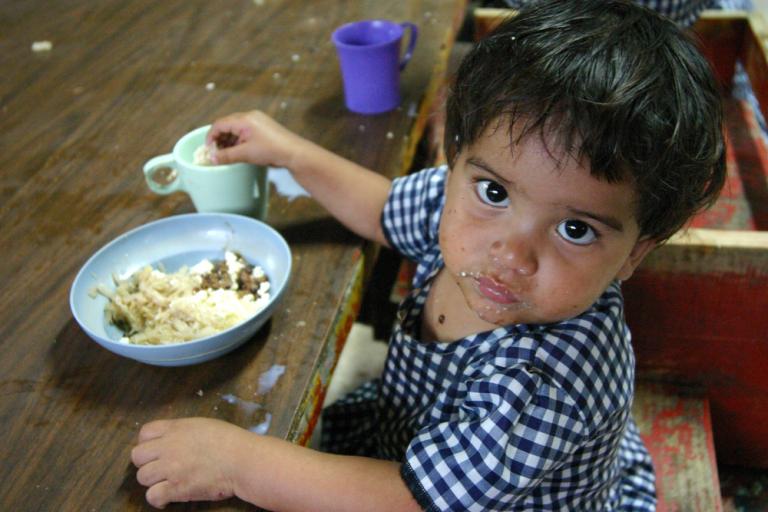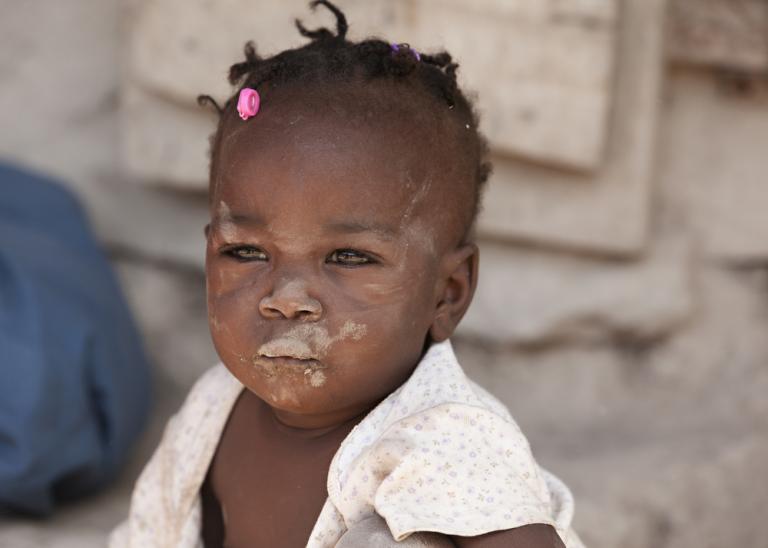By Rabbi Francis Nataf.
Many questions still remain as the United Nations completes the review of its Millennium Development Goals (MDG) scheduled for later this year. But perhaps the biggest question should really be former New York mayor, Edward Koch’s, trademark quip about personal performance, “How am I doing?”
At the top of the MDGs was halving the number of people subsisting on less than $1.25 a day. And partly because the UN made it a public goal, that milestone was reached well ahead of its deadline. But it is not enough to cheer the good news and leave it at that. A great deal remains to be done, first and foremost with the half that has not yet been raised out of destitution. So we come back to ask, even if things have moved in the right direction on the aggregate, to what extent has change occurred on the personal level. In other words, how much more responsible – if at all – do we feel for those in need across the globe?
And why should we not feel responsible? I am sure that it is not just the Jewish tradition that recognizes the profound correctness of 19th-century German Rabbi Marcus Lehmann’s words, when he wrote, “The mere fact that a person is hungry, gives him the right to my help, whether he has earned it or not, whether he deserves it or not.”
Yes, I know that some third world governments hamper foreign aid from reaching the poor and I also know that there are many other not-negligible structural impediments. But the main problem remains that there is not enough money given by those who can give. Or as Pope Francis said, “In a world where there is so much wealth… it is unfathomable that there are so many hungry children.”
So why do we generally not feel a burning need to do more?
For most of us, providing resources for those less fortunate (something we will here call mutual aid) is what happens at the local level – in our communities. In fact, that is one of the very things that defines (and should define) community. When we see someone in need, we know that the right thing to do is to help.
The fact is that throughout nearly all of history, localized limits on one’s responsibility were eminently correct, if for no other reason than because they were realistic. Narrow parameters of giving were based on the sober knowledge that a community’s resources could not help everyone on the planet, not even in a basic way. But localized mutual aid was also grounded in an almost universal understanding that we really do have a greater responsibility to our neighbors than those beyond. If charity need not end there, it certainly does begin at home.
Accordingly, Jewish law characteristically seeks to set out very clear guidelines as to whom I must prioritize in my giving. It sets up a rather intuitive hierarchy, putting the ones closest to home first. But it also posits that the hierarchy is only in place when the level of need is the same. When it is not, and certainly when someone lower in the hierarchy is in danger of starvation, the normal pecking order is trumped. Most importantly for our purposes, however, is that the order does not create limits based on the recipient’s geographical location or his membership in a certain community. This is forcefully summarized again by Lehmann: “[our responsibility is] not only [to] friends, relations and co-religionists, but [to] anyone, even an opponent or an enemy…”
The above means that the need for charity to start at home was never meant as a signal to temper our help and conclude that charity ends where our community does. Nor were the ethics of triage meant to get us to throw up our hands and say that, after all, the ultimate outcome is up to God. Rather, it was only because we simply did not have enough resources to take care of all the needy. Hence, when we see that there begins to be enough resources to go around, and when we also know who needs help and how we can get it to them, these things should become game changers in how we conceive of our own responsibility.
On some level, Judaism represents the most particularistic strand of the world’s great religions. I need not speak about other religions where universal responsibility is more obviously the case. Hence, when the practical reasons for focusing our charity on the local level fall away, can there be any reason for the man or woman of faith not to put the dire needs of the global poor front and center?
The above has important ramifications for the public square. In the last century, the modern welfare state has shown itself to be a remarkable channel through which to discharge our mutual aid obligations. Certainly, we can disagree about its scope and its strategies, but few would want to go back to the days when the sick, elderly, and unemployed were a purely private matter.
Thinking of one’s country as a community with a prior claim over foreigners certainly fits with the paradigm of co-centric circles of responsibility. But as we have argued, the question is no longer one of prioritization. It is whether foreigners are in the same category of mutual responsibility as a nation’s citizens. So long as there wasn’t enough to go around, we had the “luxury” of not having to face that question. But once no longer the case, the only argument that can be made not to fully take care of the basic needs of all created in the image of God is to say that we are responsible only for our fellow citizens. That to help others is only an optional act of kindness and grace. Judaism certainly doesn’t make that statement and I would be surprised if any other religious tradition makes it either.
 Rabbi Francis Nataf is a Jerusalem-based educator, writer and thinker. He is the author of three books of contemporary Bible commentary as well as of numerous articles for Haaretz, the Jerusalem Post, the Times of Israel, the Jewish Press and the Jerusalem Report. He is also associate editor of the Jewish Bible Quarterly. Visit his site at www.francisnataf.com.
Rabbi Francis Nataf is a Jerusalem-based educator, writer and thinker. He is the author of three books of contemporary Bible commentary as well as of numerous articles for Haaretz, the Jerusalem Post, the Times of Israel, the Jewish Press and the Jerusalem Report. He is also associate editor of the Jewish Bible Quarterly. Visit his site at www.francisnataf.com.












